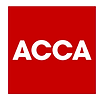If you have to travel on business HMRC accepts the cost as a tax deductible expense. However, it argued the opposite in a high profile tribunal case. Why and what was the outcome?
The taxes act
Tim Healy (H), the well known TV actor (Auf Wiedersehen Pet), lived in Cheshire, but was required to work in London for a period of time whilst appearing in a musical. Rather than booking into a hotel room he rented a flat on a short-term basis (six months). The costs were comparable to a hotel room but he wanted to be able to have family and friends to stay. He claimed the rent payments as a tax deduction.
Taxman says no
HMRC refused to accept the claim, arguing that rent payments were a private living cost and so not business related. H appealed to the First-tier Tribunal (FTT) and initially won. The judge said that it was clear he had no intention of making London his home. HMRC refused to accept this and appealed. The Upper Tier Tribunal decided that the FTT had made an error in law and ordered it to reconsider the case.
Wholly and exclusively
HMRC argued that the rent wasn’t tax deductible because it had a duality of purpose and only expenses “wholly and exclusively” incurred in the course of business are allowable for tax. The FTT, given a second bite at the cherry, agreed. It concluded that because H’s intention was always to allow personal guests to stay there were two purposes for the expenditure – business and non-business. H’s counter argument was that therefore a proportion of the expense should be allowed. However, the FTT dismissed that because there was no identifiable part or proportion of the expenses that could be shown to solely relate to his use of the property for business.
Not a clear-cut rule
This decision highlights the importance of the wholly and exclusively test. In practice the way the rule is applied has been determined by many varied and conflicting court decisions.
Tip. If you incur expenses that have or could have a personal element to them, try to ensure that, as far as possible, the part relating to business is separated as much as possible so you can claim it. For example, if H had rented a smaller flat for himself and an adjacent or nearby flat for use by family and friends, HMRC would have accepted the rent paid on the first flat as tax deductible.
Incidental benefits
There’s an exception to the wholly and exclusively rule. If an expense provides a personal benefit, for example, a consultant who travels to the Bahamas for a few weeks and takes the opportunity to enjoy the islands while there, this doesn’t prevent it qualifying for a tax deduction because personal enjoyment is merely incidental to the business purpose.
Employment expenses too
Remember that if you’re an employee or director claiming a tax deduction for business expenses, the wholly and exclusively test also needs to be met. Plus there’s an additional condition that it needs to be necessary for the employee to carry out their job.
By: FL Memo









